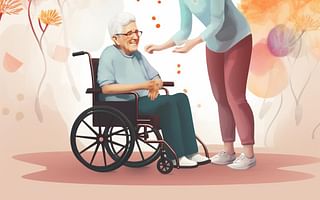🌟 Understanding the Signs of Approaching Death in Dementia Patients 🌟
Understanding the Signs of Approaching Death in Dementia Patients
End-of-life care for dementia patients is a journey filled with emotional challenges and critical decisions. Recognizing the signs of approaching death in dementia patients is crucial for providing them with the most comfortable and dignified care possible. Our interactive quiz above provides valuable insights into understanding these signs and how to respond to them.
One of the most common signs that death is near in dementia patients is a reduced intake of food and liquids. This is a natural part of the body's preparation for the end of life, as it begins to shut down and conserve energy. However, it's essential for caregivers to ensure the patient's comfort during this time. Small sips of water or moistening their mouth with a damp sponge can provide relief. For more detailed guidance, you can refer to our FAQ on how a dementia patient should be managed.
Another sign is increased sleep. This is because the body is conserving energy in preparation for its final stages. During this time, your presence, a gentle touch, or soothing music can provide comfort to the patient. Learn more about the symptoms of end-stage dementia to better understand and navigate this challenging period.
As dementia progresses, it's important to remember that every individual's journey is unique. The symptoms and their progression can vary greatly. For instance, some individuals may pass away shortly after a dementia diagnosis, while others may live for several years. You can read more about this in our article on understanding the life expectancy in dementia patients.
Finally, remember that you are not alone in this journey. Providing care for a loved one with dementia can be overwhelming, but there are resources and support available. If you're considering moving your loved one into a care home, our FAQ on when it's appropriate for a dementia patient to move into a care home may be helpful.
At Dementia Care Tips, we are here to provide compassionate, informative, and supportive advice to help you navigate the complexities of dementia care. Our aim is to empower you with knowledge and understanding, so you can provide the best possible care for your loved one.













